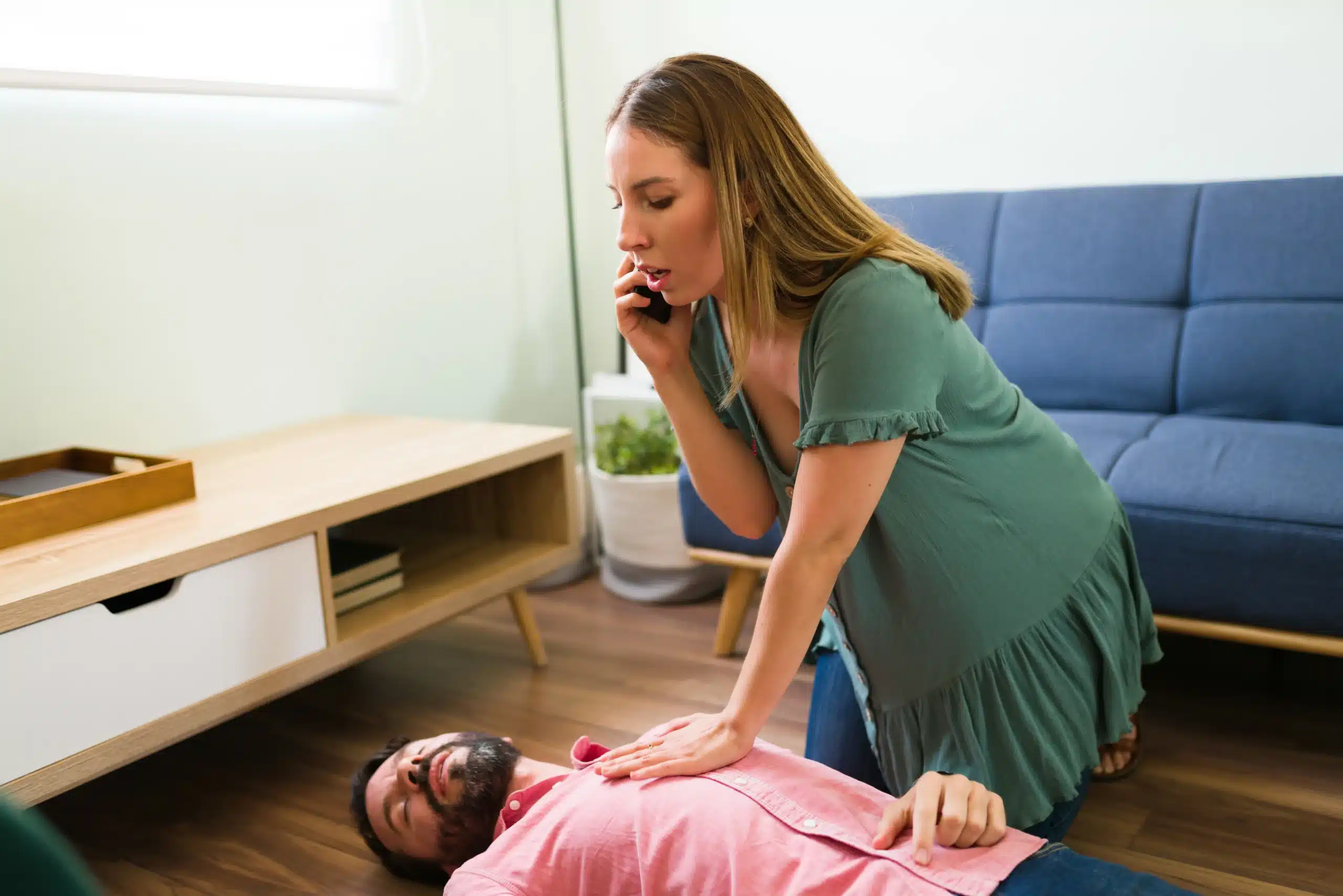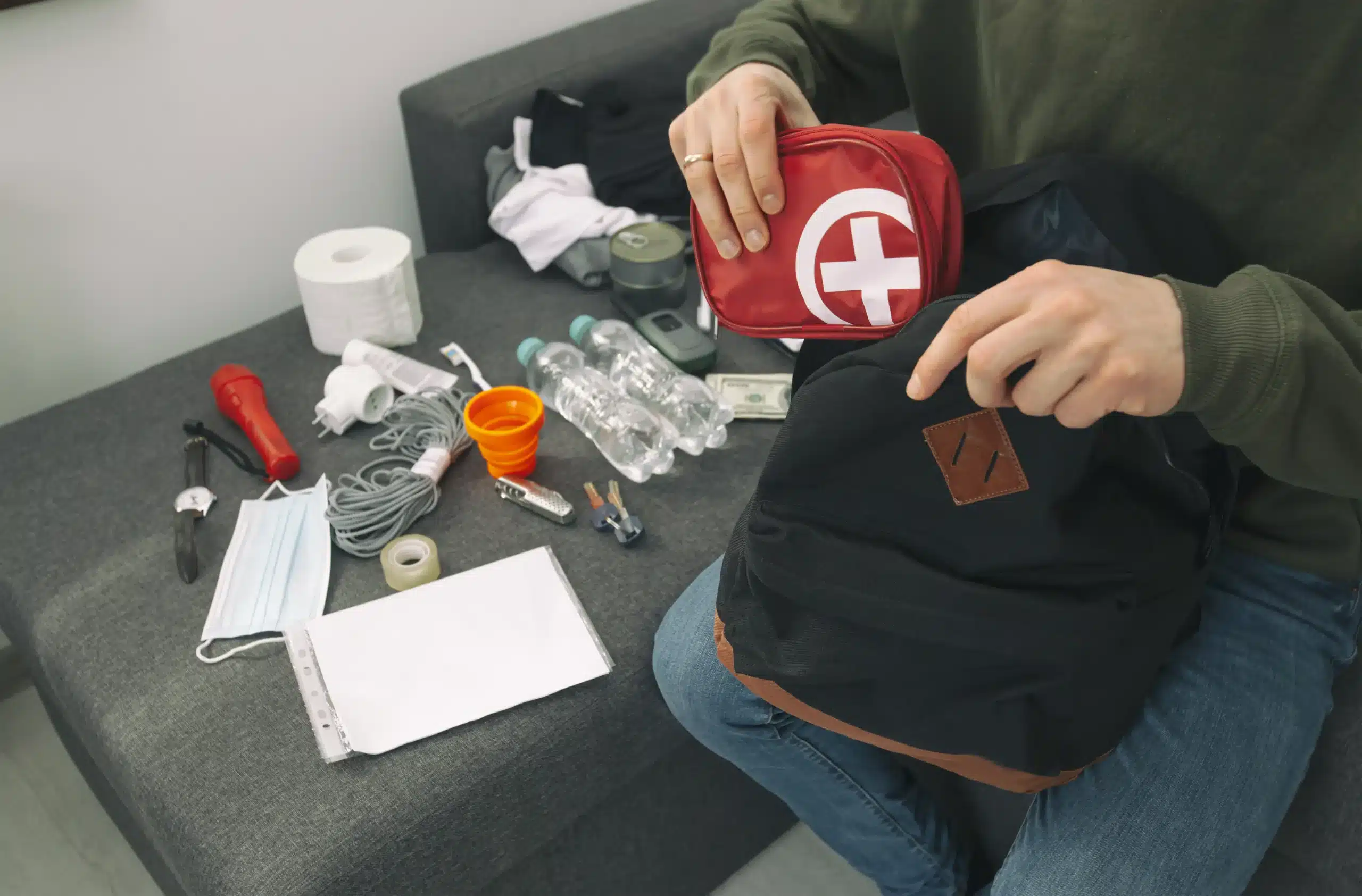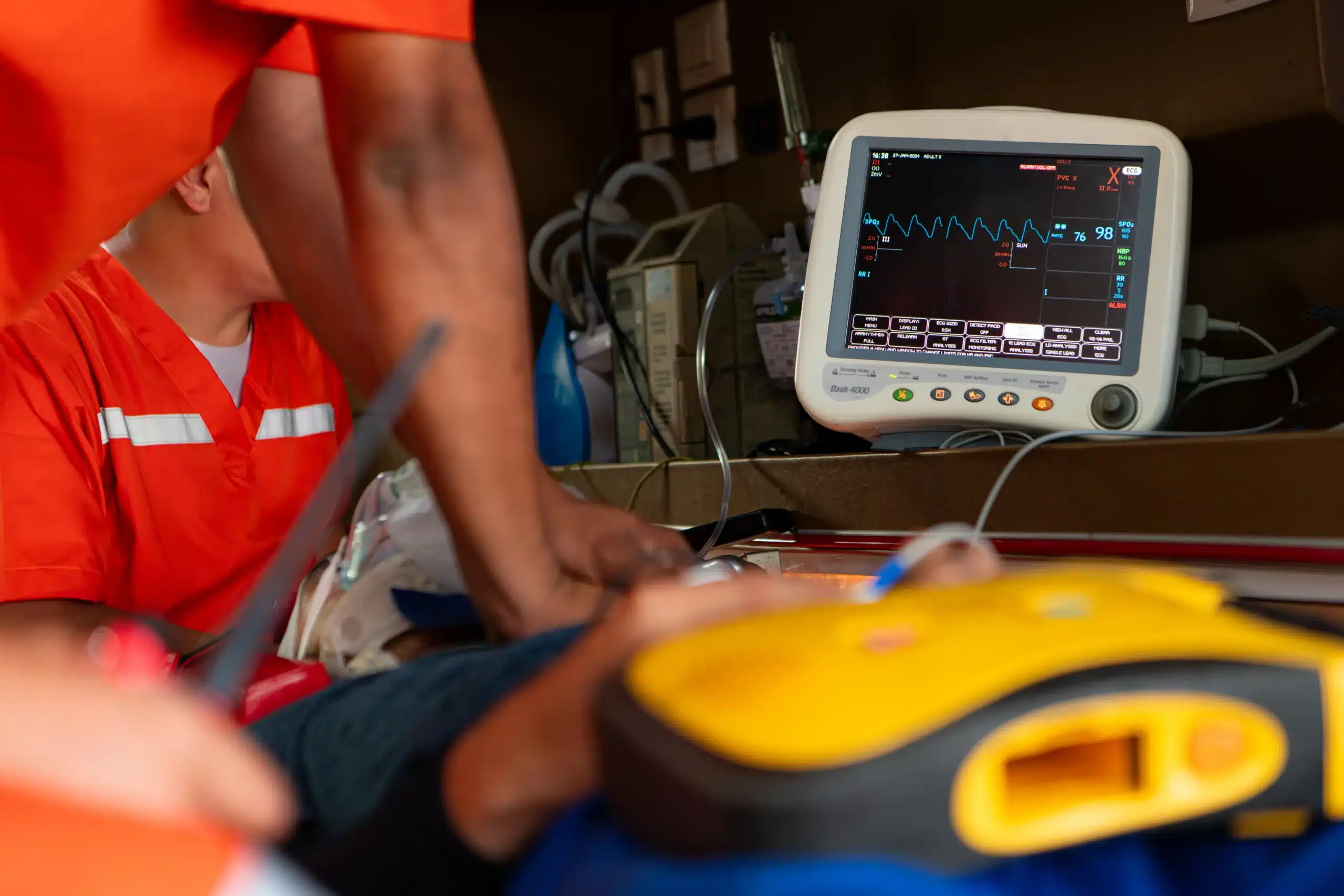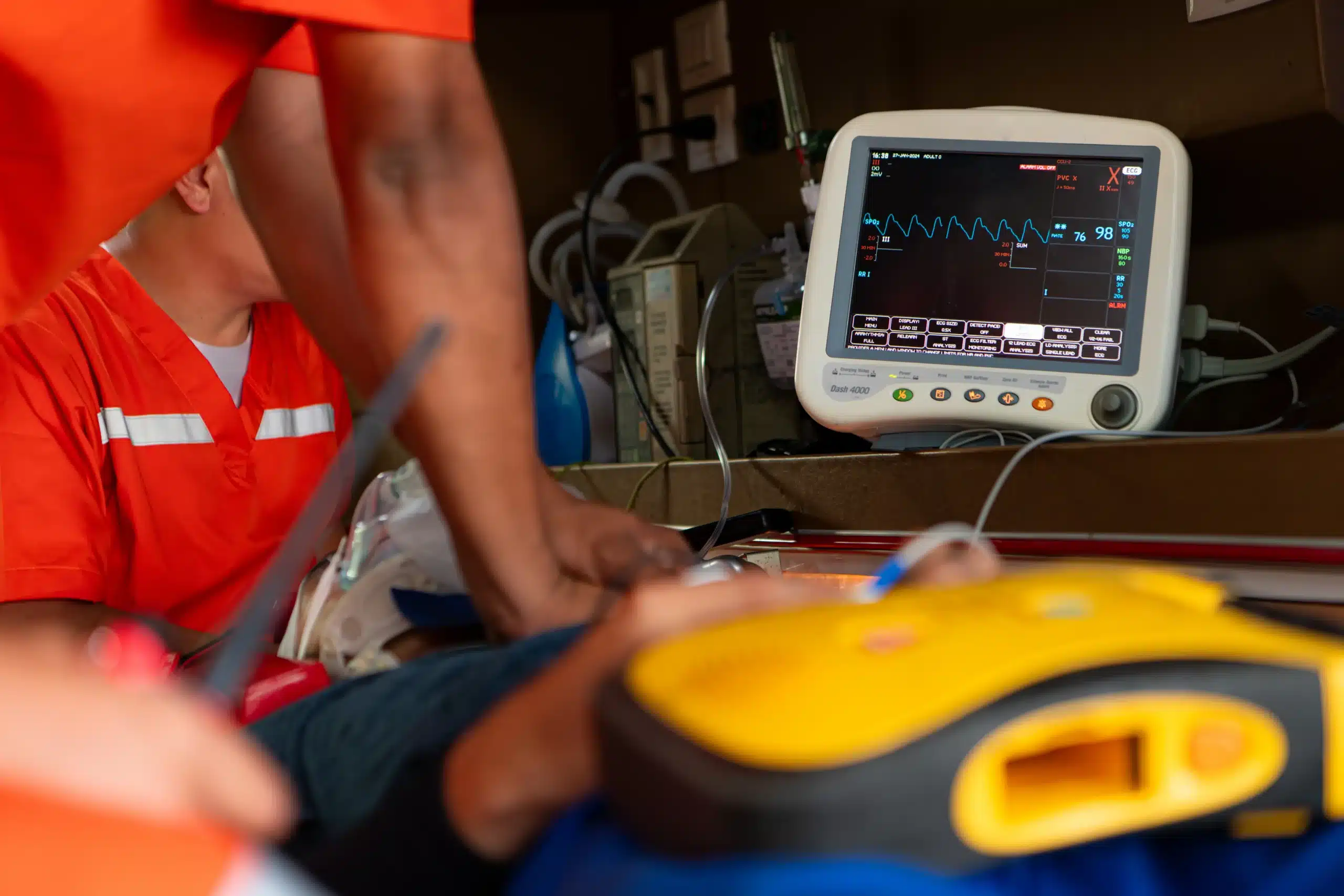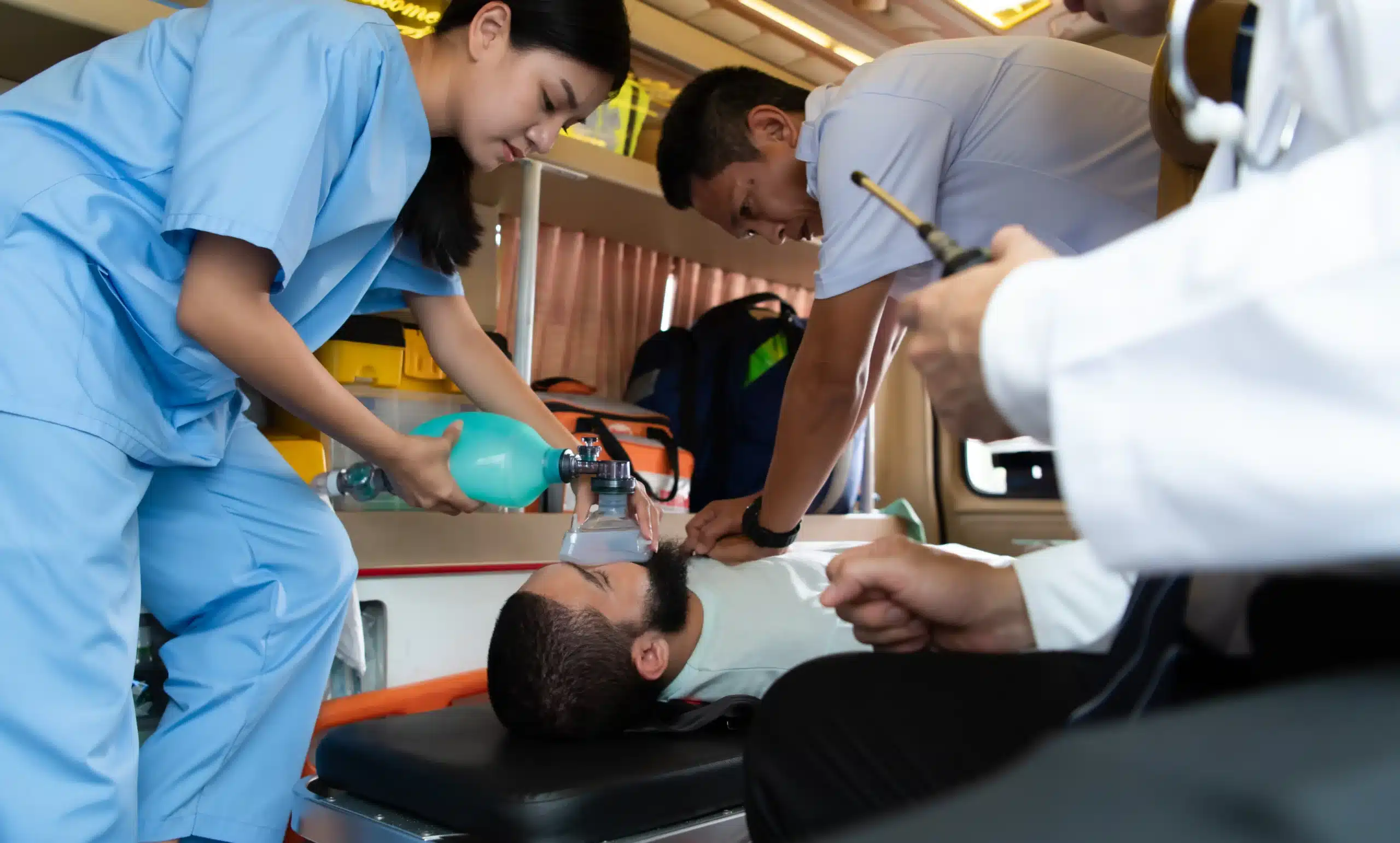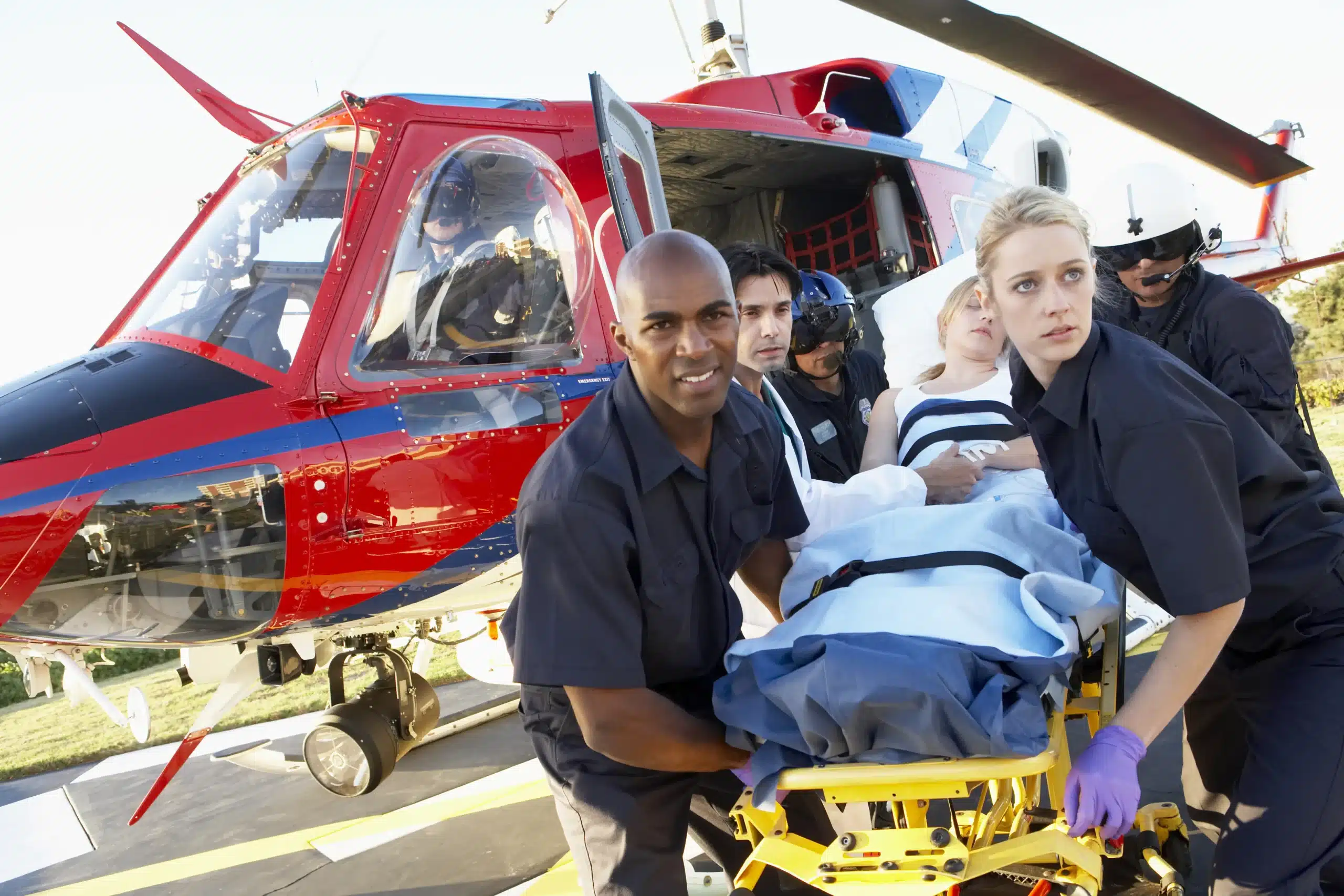In an emergency, every second counts. CPR can be the difference between life and death, and having the right training can give you the confidence to act quickly and effectively. This guide provides a complete overview of CPR classes in Rocklin, covering everything from basic CPR training to advanced certifications like ACLS and PALS. We’ll explore the various options available, discuss costs and schedules, and address common misconceptions about CPR training. Whether you’re a healthcare professional, a community member looking to learn a life-saving skill, or seeking recertification, this guide will help you find the perfect CPR class in Rocklin to suit your needs.
Key Takeaways
- CPR certification empowers you to save lives: Whether you’re a healthcare professional or a concerned citizen, CPR training equips you with the skills to respond effectively in emergencies. Find a course that meets your specific needs.
- Rocklin offers accessible CPR training options: Convenient schedules, competitive pricing, and various certification levels make it easy to get trained in Rocklin. Explore local providers and choose the best fit for your lifestyle.
- Stay current with your CPR skills: Regular practice and renewal courses ensure you remain confident and prepared for emergencies. Maintain your certification to provide high-quality care when it matters most.
What is CPR? Why is it Important?
Cardiopulmonary resuscitation (CPR) is a life-saving technique used when someone’s breathing or heartbeat has stopped. This can happen due to a heart attack, near drowning, or other medical emergencies. CPR helps maintain the flow of oxygen-rich blood to the brain and other vital organs, buying precious time until professional medical help arrives. Learning CPR equips you with the skills to respond effectively in these critical situations.
The unfortunate reality is that hundreds of thousands of Americans die each year from sudden cardiac arrest. Immediate CPR can dramatically increase a victim’s chance of survival, sometimes doubling or even tripling their odds. While professional responders are essential, bystanders trained in CPR play a crucial role in those first few minutes. CPR administered outside of a hospital setting can significantly improve survival rates, highlighting the importance of community-based training and preparedness. Knowing CPR empowers you to make a real difference when every second counts.
CPR Classes in Rocklin: What Are Your Options?
Choosing the right CPR class depends on your individual needs and career goals. Rocklin offers various certification levels, from basic CPR training for the community to advanced courses for healthcare professionals. Let’s explore the different options available.
Basic CPR
CPR (Cardiopulmonary Resuscitation) is a life-saving technique that helps maintain blood flow to the brain and vital organs when someone’s heart stops. This foundational course equips you with the skills to respond effectively in emergencies. You’ll learn to recognize cardiac arrest, perform chest compressions, and give rescue breaths. Basic CPR certification is valuable for anyone, from parents and teachers to workplace responders. It empowers you to act quickly and confidently during a crisis.
BLS for Healthcare Providers
BLS (Basic Life Support) certification expands on basic CPR. It’s designed for healthcare professionals, like doctors, nurses, and EMTs, who need a deeper understanding of cardiovascular life support. BLS training covers high-quality CPR, using a bag-mask device, and other essential techniques for managing respiratory and cardiac emergencies. This certification is often required for many healthcare roles.
ACLS for Advanced Medical Professionals
ACLS (Advanced Cardiovascular Life Support) is a more advanced course for healthcare providers who lead or participate in managing cardiopulmonary arrest and other cardiovascular emergencies. Building on BLS skills, ACLS certification covers complex algorithms for treating life-threatening conditions. Topics include airway management, rhythm recognition, and effective team dynamics during resuscitation. This training is essential for professionals in critical care, emergency rooms, and intensive care units.
PALS for Pediatric Care Specialists
PALS (Pediatric Advanced Life Support) focuses on providing emergency care for infants and children. This specialized course teaches healthcare providers how to recognize and respond to life-threatening situations in young patients. PALS training covers pediatric-specific resuscitation techniques, medication administration, and managing respiratory and circulatory problems. It’s crucial for pediatricians, pediatric nurses, and other healthcare professionals working with children.
CPR Class Costs & Schedules in Rocklin
Finding a CPR class that fits your budget and schedule is easy in Rocklin. With various options, you can get certified without the hassle.
Course Pricing
CPR class costs vary depending on the certification level you need. Basic CPR classes are typically less expensive than advanced certifications like ACLS or PALS. For the most up-to-date pricing, contact Rocklin CPR Classes directly. Many providers, including Safety Training Seminars, offer competitive rates and are happy to discuss course fees.
Group Discounts & Financial Aid
Looking to train a group? Ask about group discounts for CPR training. These discounts can make training more affordable, especially for workplaces or community organizations. Rocklin CPR Classes is committed to affordability and often has a low-price guarantee.
Class Times & Duration
Rocklin CPR Classes offers flexible scheduling. Classes are available daily, often between 8 am and 10 pm. Course duration varies depending on the certification. Basic CPR and First Aid courses can often be completed in a day, while more advanced courses like BLS may take 1–2 hours, and ACLS or PALS could require 3–4 hours. Check with your chosen provider for specifics. Bay Area CPR offers classes seven days a week, making it easier to fit training into your schedule.
Get CPR Certified: Process & Renewal
Initial Certification
Getting your CPR certification is straightforward. Enroll in a course through a nationally recognized organization like the American Heart Association (AHA). Rocklin CPR Classes offers various AHA-certified courses, including CPR, Basic Life Support (BLS), Advanced Cardiovascular Life Support (ACLS), Pediatric Advanced Life Support (PALS), and First Aid. These courses will equip you with the skills to respond to emergencies.
How Long is Certification Valid?
CPR certification is valid for two years. This timeframe ensures you refresh your skills and stay current with the latest CPR guidelines. Keep track of your certification’s expiration date.
Renew Your Certification
Before your certification expires, renew it to maintain your qualifications. Renewing your CPR certification involves a refresher course to reinforce your skills and cover any updated procedures. This process ensures you remain prepared and confident in providing effective CPR during emergencies. Staying certified demonstrates your commitment to high-quality care.
Benefits of CPR Training in Rocklin
Getting CPR certified isn’t just about checking a box; it’s about equipping yourself with skills that can make a real difference. Whether you’re a healthcare professional, a concerned parent, or simply someone who wants to be prepared, CPR training offers a range of personal and professional advantages. Here’s why CPR training in Rocklin is so valuable:
Learn Life-Saving Skills
CPR (Cardiopulmonary Resuscitation) is a life-saving technique that helps maintain blood flow to the brain and vital organs when someone’s heart stops beating. While survival rates after cardiac arrest can be low, knowing CPR dramatically increases the chances of someone pulling through. Learning CPR means you’re prepared to act quickly and effectively in a critical situation, potentially saving a life.
Advance Your Career
In many professions, CPR certification is a requirement or provides a competitive edge. This is especially true in healthcare, where medical professionals, nurses, doctors, and other providers often need this skill. Even outside of healthcare, CPR certification demonstrates your commitment to safety and preparedness—a valuable asset in various fields, including childcare, fitness, and recreation.
Build Confidence in Emergencies
Knowing what to do in a medical emergency can be the difference between panic and effective action. Hands-on CPR training provides the practice and confidence you need to respond calmly and efficiently under pressure. Practicing techniques on manikins simulates real-life scenarios, building muscle memory and the ability to think clearly in stressful situations. This preparation can empower you to act decisively when every second counts.
Empower Your Community
When more people in a community know CPR, the entire community benefits. Group CPR training in Rocklin empowers residents to respond effectively to cardiac emergencies. This creates a network of skilled individuals ready to assist when needed, improving outcomes and strengthening the overall safety net within the community. By getting certified, you become a valuable link in this chain of life-saving support.
What Happens During a CPR Class?
CPR classes blend instruction, hands-on practice, and assessment to equip you with the skills and confidence to respond effectively in emergencies. Here’s a glimpse of what you can expect:
Instruction & Online Learning
CPR classes often begin with instruction covering essential concepts and techniques. Some classes offer online learning modules, providing flexibility and convenience. You can study key principles and procedures at your own pace before attending an in-person skills session. These blended learning formats typically result in a two-year certification that meets OSHA requirements. For example, the Red Cross offers a variety of CPR class formats.
Hands-on Practice
Hands-on training is a crucial part of any CPR class. It’s the most effective way to develop the muscle memory and practical skills needed to perform CPR effectively. You’ll practice chest compressions, rescue breaths, and other techniques on realistic manikins. This hands-on practice builds confidence and prepares you to respond calmly and efficiently in real-life situations. Experts agree that hands-on training is superior to online courses or videos for truly mastering these skills.
Assessment & Certification
After completing the instruction and practice components, you’ll undergo an assessment to demonstrate your proficiency. This often involves a skills test using a voice-activated manikin. While an instructor might not be physically present during the test, assistance is typically available if needed. You’ll receive your CPR certification card upon successful completion of the class, validating your skills and knowledge. Many providers, such as Bay Area CPR, issue certification cards the same day.
Find the Right CPR Class in Rocklin
Finding the right CPR class depends on a few key things: the type of certification you need, the cost, and your schedule. Choosing a training center with a good reputation and a current curriculum is also important.
Choosing a CPR Provider
Look for a CPR class with credible and widely accepted certification. American Heart Association (AHA) certified courses are a good choice because they meet national standards. See if the provider offers a range of courses, such as CPR, BLS, ACLS, and First Aid. A convenient schedule and location are also essential.
Top Rocklin CPR Training Centers
Here are some options for CPR training in and around Rocklin:
Rocklin CPR Classes
Rocklin CPR Classes offers various AHA-certified courses, including CPR, BLS, ACLS, PALS, and First Aid. With classes daily from 8 am to 10 pm, they accommodate busy schedules. They focus on affordability and accessible training.
Safety Training Seminars
Safety Training Seminars has over 60 locations in Northern California and competitive pricing for CPR training in Sacramento County. Their RQI (Resuscitation Quality Improvement) program provides quick certification and enhanced training.
Bay Area CPR
Bay Area CPR specializes in AHA-certified CPR, BLS, ACLS, and PALS classes, as well as First Aid training. They prioritize affordability and convenience, making certification more attainable.
American Red Cross (Nearby in Roseville)
Although not in Rocklin, the American Red Cross in nearby Roseville offers CPR/AED classes. They provide various course formats, including in-person, online, and blended learning.
CPR Training Myths: Debunked
Several misconceptions about CPR training prevent people from getting certified. Let’s clear up some of these common myths:
Myth 1: CPR is only for healthcare professionals. This is absolutely false. While CPR certification is often a job requirement for healthcare providers, anyone can and should learn CPR. It equips you to respond to emergencies and potentially save a life, even before professional help arrives. Learn CPR and become empowered to act in emergencies.
Myth 2: You need to be a medical expert to perform CPR effectively. CPR training provides you with the essential skills and knowledge to perform CPR correctly. Certified instructors guide you through the process, ensuring you understand the techniques and feel confident using them. You don’t need advanced medical knowledge to make a difference. Sign up for a CPR class today.
Myth 3: You might do more harm than good performing CPR. The fear of causing further injury is understandable, but the truth is, doing nothing is far more dangerous. The chances of causing harm are minimal, while the potential to save a life is significant. CPR is designed for individuals who are unresponsive and not breathing—in these situations, immediate action is crucial. Learn more about the realities of CPR.
Myth 4: CPR should continue until the person is revived. CPR should be performed until emergency medical services arrive and take over, or the person shows clear signs of regaining consciousness, such as normal breathing. Continuous CPR is important, but it’s not indefinite. Our certified instructors will cover all of this during your training. Get the facts about CPR.
Myth 5: CPR training is expensive and time-consuming. While costs and duration vary, many affordable and convenient CPR courses are available. Investing a few hours in a CPR class can equip you with skills for life. Explore our affordable group discounts. Contact us to learn more about our pricing and scheduling options.
Maintain Your CPR Skills
CPR is a life-saving skill, but like any skill, it requires upkeep. Staying current with your training ensures you can respond effectively in a real emergency. This section covers how to maintain your CPR skills after your initial CPR certification.
Materials & Prep
Refreshing your CPR knowledge doesn’t require a lot of fancy equipment. Having a few basic materials on hand can make practice easier and more effective. A CPR training manikin lets you practice chest compressions and get a feel for the correct depth and rhythm. You can also find videos demonstrating proper CPR technique online. A basic first-aid kit isn’t directly related to CPR, but it’s a good idea to review its contents periodically and ensure everything is up-to-date and stocked. Knowing where your kit is and what’s inside can save valuable time in an emergency. A good CPR class will cover the basics of using an AED (Automated External Defibrillator). While you won’t need your own AED for practice, familiarizing yourself with how they work is helpful. You can often find instructional videos online. Finally, keep a copy of your CPR certification card handy. Knowing when your certification expires helps you stay on top of renewals. A basic CPR course can take anywhere from two to four hours and teaches the essentials of chest compressions and rescue breaths—perfect for anyone wanting a foundation in CPR.
Stay Sharp After Certification
Even if your certification lapses, providing CPR in an emergency is always better than doing nothing. However, maintaining a current certification is ideal. Hands-on practice is key to retaining CPR skills. Consider periodic refresher courses to keep your techniques sharp and your confidence high. These courses offer the opportunity to practice on manikins and receive feedback from certified instructors. Hands-on training is more effective than online courses or videos because it builds muscle memory and confidence. Regularly reviewing the steps of CPR, even without physical practice, can help reinforce your knowledge. Mentally rehearsing the sequence of chest compressions, rescue breaths, and AED use can improve your response time in a real emergency. Look for opportunities to practice. If you’re a healthcare professional, regular simulations and drills are likely part of your job. If not, consider volunteering to teach basic CPR techniques to friends, family, or community groups. Teaching others is a great way to solidify your own understanding.
Why Choose Rocklin for CPR Training?
When it comes to CPR training, Rocklin offers distinct advantages that make it a smart choice for residents and those in surrounding areas like Roseville and Sacramento. From a community-focused approach to convenient scheduling and top-notch programs, here’s why you should consider Rocklin for your CPR certification.
Community Focus & Local Emergencies
One of the most valuable aspects of local CPR training is its focus on emergencies specific to your area. Rocklin CPR classes often incorporate scenarios relevant to the region, giving you practical skills you can confidently use in real-life situations. Group CPR training in Rocklin empowers individuals and communities to respond effectively to local emergencies. This community-based approach strengthens the network of trained responders and enhances overall safety.
Convenient & Quality Training
Rocklin offers a variety of high-quality CPR training options designed to fit your schedule and learning preferences. Safety Training Seminars provides a range of American Heart Association (AHA)-certified courses—CPR, BLS, ACLS, PALS, and First Aid—with classes available daily from 8 am to 10 pm. Their commitment to affordable pricing in Sacramento County makes quality training accessible. For healthcare professionals seeking a fast and efficient path to certification, the RQI (Resuscitation Quality Improvement) program offers an online course component, skills testing with a voice-assisted mannequin, and same-day certification.
Related Articles
- The Importance of CPR in Saving Lives – Rocklin CPR Classes
- CPR Classes in Sacramento: Your Certification Guide – Rocklin CPR Classes
- Busting CPR Myths and Saving Lives
- The Science Behind Effective CPR: A Comprehensive Guide
- CPR Classes Rocklin CA: Your Complete Guide – Rocklin CPR Classes
Frequently Asked Questions
What’s the difference between CPR and BLS?
CPR focuses on chest compressions and rescue breaths for anyone whose heart has stopped. BLS builds upon those core CPR skills and includes additional techniques like using a bag-mask device and is geared towards healthcare providers. Think of BLS as CPR plus other essential life support skills for professionals.
How do I choose the right CPR class for me?
Consider your current job or career aspirations. If you’re a healthcare professional, BLS, ACLS, or PALS might be required. If you’re a parent, teacher, or simply want to be prepared for emergencies, a basic CPR and First Aid class is a great starting point. Think about your specific needs and choose the class that aligns with them.
How much does CPR certification cost, and how long does it last?
Costs vary depending on the level of certification. Basic CPR classes are generally less expensive than more advanced courses like ACLS. Certification typically lasts for two years. Contact Rocklin CPR Classes directly for the most current pricing information.
What can I expect during a CPR class?
Expect a combination of instruction, hands-on practice, and assessment. You’ll learn the techniques, practice them on manikins, and then be evaluated to ensure you’ve mastered the skills. Some classes also offer online learning modules for added flexibility.
How can I keep my CPR skills sharp after I get certified?
Regular practice is key. Consider taking refresher courses, watching videos demonstrating proper technique, or even volunteering to teach basic CPR to others. Staying current with your skills ensures you’ll be ready to respond effectively in a real emergency.

